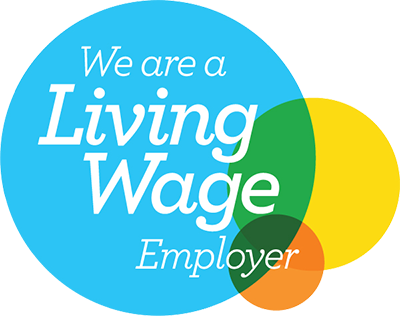

Is sustainable procurement still a priority during times of crisis?
The war in Ukraine is dominating headlines. In addition to the terrible humanitarian crisis, it’s having a real impact on the global economy, and supply chains all over the world.
In this post, we’re exploring the impact the war in Ukraine is having on supply chains and business sustainability pledges – and why sustainable procurement is still so important.
Disrupted Supply Chains in Times of War
There are two main reasons the war in Ukraine has had negative impact on the supply chain. These are the sanctions on Russia, and the direct impact of the conflict inside Ukraine.
Europe is heavily dependent on Russian gas and oil for its energy – which impacts on every industry.
In terms of agriculture, Russia and Ukraine account for more than a quarter of the world’s wheat, almost two thirds of the sunflower oil and around a third of barley exports. Russia is also one of the world’s leading providers of fertilizer – which could impact on crop yields across the globe.
Russian exports also include some important metals, including platinum, palladium, titanium and nickel, as well as key forest commodities such as timber.
This article provides a deeper overview of just how important Russia and Ukraine are to global supply chains.
The Ongoing Supply Chain Crisis
The troubles caused by Ukraine are being compounded by the ongoing supply chain issues. The pandemic, and the collective global response to it, has caused a worldwide shipping and logistics crisis.
From the early lockdowns and quarantine rules, through to the 2021 Suez blockage, it’s been a challenging few years! We’ve seen a lack of dock workers in the USA and labour strikes in Europe, against a backdrop of soaring demand as the world gets back to work after covid. Today, China’s zero covid policy is causing bottlenecks in Shanghai. At times, the logistics issues have also been compounded by a shortage of commercial drivers.
It isn’t just logistics that’s been affected. Raw material production has also been hamstrung, due to restrictions on movement of workers. This has had a knock on effect throughout the supply chain – increasing production lead times for a huge number of products.
Prices are rising, lead times are increasing and securing supply of key materials has become a real challenge for businesses in multiple industries.
Slipping on Sustainability
The sad truth of the matter is that sustainability is taking a hit – as governments and organisations across the globe pivot towards the immediate challenges.
Governments are changing energy policies and softening stances on fossil fuels. Businesses are compromising on their own standards as they look to shore up supply chains and ensure their own survival.
In the oils and fats market, we’re already seeing the impact of the reduction in sunflower supply. Producers are rushing to secure limited supplies, and looking to alternatives such as rapeseed. Some are also backtracking on pledges made to stop using palm oil. The supply and demand imbalance means that many are turning a blind eye to the provenance and sustainability of commodities.
Although this is understandable given the grave situation, it’s a huge disappointment, and a bitter blow to progress on sustainability. Once implemented, it’s easy for short-term fixes and solutions to become embedded. Given the urgency of the climate crisis, any pause or backtracking on sustainability could have a serious impact – while making it less likely that we achieve our goals.
Lessons to Learn – Strengthening Supply Chains
The current geopolitical landscape has underlined just how important it is for organisations to develop robust, sustainable supply chains. Having strategic dependencies on single suppliers or regions has always been risky – and the current crisis has made this extremely clear.
Although tackling the root causes of supply chain troubles can be a major undertaking – there are lessons to be learned, and steps that organisations can take now to mitigate risks and shore up supply chains.
Ensuring that the right risk management tools are in place, developing secondary supplier relationships for key commodities, updating inventory policies, setting safety stock levels, and examining contracts to factor in commodity inflation are just some of the things you can be doing now to build resilience and stabilise your supply chain for the future.
Maintaining Progress on Sustainability
So how does sustainability fit into this process?
It’s important to look at the bigger picture, and why we’re bothering with sustainability in the first place. We’re doing it to ensure a better future for people and the planet!
Considering sustainability doesn’t have to hamper your organisations, and there are many business benefits of sustainable procurement.
Some of the biggest future risks to supply chains over the coming decades are likely to be caused by the impact of climate change. Implementing the right sustainable procurement policies now means you’re doing your part to minimise the impact of climate change, while mitigating the risks associated with it.
Sustainable and Robust Supply Chains With Gateway Procurement
Looking to improve your green credentials while adding resiliency to your supply chain? Implement the right sustainable procurement programme and build a greener future with our support.
Using our specialist software, we can calculate your supply chain emissions, identify GHG hotspots – allowing your business to benefit from in-depth Scope 3 (Supply Chain) analysis on all your suppliers to gain complete visibility over your carbon footprint.
From implementing the ISO20400 standard and improving ESG credentials, through to finding a way to achieve Net Zero – we can help. Whatever industry you’re in, we will collaborate with you to identify your business’s needs and provide a bespoke procurement solution that will make you a greener, more sustainable organisation, while delivering real value.
To find out more, please get in touch today








